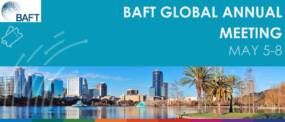Estimated reading time: 5 minutes
ESG may be front-of-mind, but how can the wider implications of sustainability help different areas of trade?
While the environmental, social, and governance (ESG) agenda is clearly front-of-mind at the moment and a crucial element of sustainability, the topic is more nuanced than it might first appear.
In order to be truly sustainable, trade needs to be accessible to not only the largest corporates but also mid-sized corporates, small- and medium-sized enterprises (SMEs), and even micro-SMEs.
What’s more, it needs to be free of difficulties, disruption, and costs brought on by fraud.
That’s not to minimise the importance of ESG. Today’s trade finance technology needs to also provide ESG tracking of individual trade finance transactions.
Surecomp has been involved in the International Chamber of Commerce (ICC) Sustainability Working Group’s recent sustainability positioning paper, which outlined the need for an ESG rating of the buyer, the seller, the goods, and the transport.
Likewise, today’s trade finance users need to be able to incorporate ESG ratings into their trade finance transactions as quickly and easily as possible.
Combatting fraud

While ESG is important, we’re also thinking about sustainability much more broadly, particularly when it comes to minimising fraud in trade finance.
Ultimately everyone pays for fraud because banks have to take higher margins as a buffer against any fraud-related losses.
Trade finance, in particular, is still heavily paper-based, which leads to considerable vulnerability, as illustrated by a high-profile $284 million metals fraud case that was perpetrated by forging warehouse receipts.
The reality is that in today’s world, we can’t trust paper—so Surecomp wants to enable everyone to use digital documents, taking paper out of the system.
Surecomp is also advocating ways to combat fraud––for example, to prevent duplicate invoice financing while remaining fully compliant with bank secrecy regulations.
Opening trade finance to everyone
So, how can trade finance technology enable all participants to trade more effectively while supporting sustainability and fostering collaboration across the trade finance ecosystem?
Thinking big
In today’s market, trade finance technology vendors are largely all focusing on the same small group of potential customers.
As a result, the number of companies currently served by trade finance technology in Europe may only be around 1,000. This represents an enormous unrealised opportunity: there are around 24 million corporations in the EU, 8 million of which could arguably benefit from trade finance solutions.
So, how can trade finance vendors add value to more of these potential customers? While there is much discussion about application programming interface (API) and MT798s, the reality is that most corporations aren’t concerned with the technicalities of how to connect to a trade finance ecosystem––they just want to use the service as easily as possible.
That’s why Surecomp is focusing on solutions that have a mass market appeal that provides a seamless user experience alongside increased accessibility––users are able to simply download an app on their mobile phones.
For example, vendors that incorporate legal entity identifiers (LEIs) into trade finance software can enable users to validate the identity of their trading partners more easily, thereby enhancing data quality and trust within the system.
Likewise, integrating data providers into trade finance technology can enable banks to carry out compliance checks on data such as container information and shipping information.
Expanded ecosystem
Surecomp believes that trade finance technology should be open to everyone; this includes a vast group of corporates, from small businesses to multinational corporations, as well as banks, non-bank financial institutions (FIs), insurance companies, investment funds and asset managers.
Insurance companies, for example, can act as providers of finance or security to trade finance transactions.
Under Basel IV, banks will need to set aside more capital for their trade finance commitments––but insurance companies, which are managed under Solvency II, won’t be subject to the same requirements.
By including insurance companies on the platform, vendors can provide support for smaller companies that might struggle to find a bank to finance their guarantees.
There’s also much to be gained by bringing together buyers and sellers of trade finance assets.
Many investment funds and asset managers are looking to invest in trade finance assets––so why not include these funds in trade finance platforms? By doing so, trade finance vendors have an opportunity to reduce transaction costs for smaller banks that lack the balance sheets needed to fund trade finance assets and hold them to maturity.
Additionally, if trade finance technology is to be accessible to everyone, the cost must not be a barrier. One way to overcome this is by adopting ‘freemium’ business models so that any bank or corporate can take advantage of a free plan to access trade finance technology.
Collaboration

Last but not least, modern trade finance solutions need to enable parties to collaborate more effectively with each other.
For example, guarantees are often held up by inaccurate data, not least because these are typically sent as PDF attachments by emails.
The resulting inaccuracies lead to delays and extra work for the bank, particularly if guarantees have to be replaced or amended.
But what if a platform could enable the applicant and beneficiary to collaborate on the details of a guarantee right at the beginning of the process? Those details could then be agreed upon before the bank even gets involved––making the process easier for everyone involved.
The way forward
In conclusion, we believe in enabling sustainable and seamless trade in any way we can.
Next-generation trade finance technology needs to incorporate everything from ESG tracking and fraud prevention to collaboration tools and a freemium business model. Moreover, embracing software as a service (SaaS) delivery will mean that participants can access their platforms without needing to fulfill any technical requirements.
 Australia
Australia Hong Kong
Hong Kong Japan
Japan Singapore
Singapore United Arab Emirates
United Arab Emirates United States
United States France
France Germany
Germany Ireland
Ireland Netherlands
Netherlands United Kingdom
United Kingdom










Comments are closed.